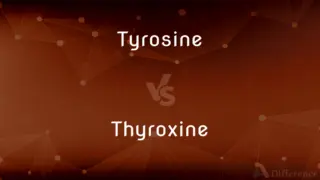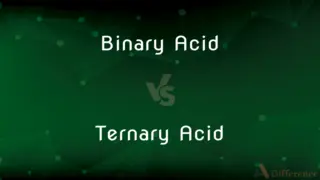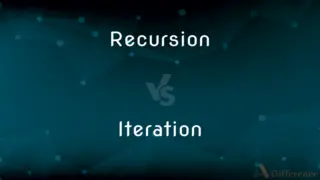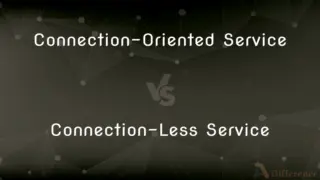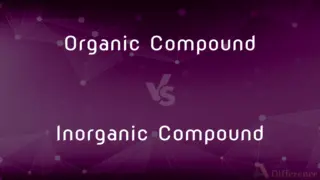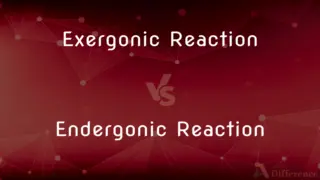Symposium vs. Forum — What's the Difference?
By Urooj Arif & Fiza Rafique — Updated on March 29, 2024
A symposium is a formal gathering for discussing specific topics, often with expert presentations, while a forum is a broader platform for open discussion among participants.

Difference Between Symposium and Forum
Table of Contents
ADVERTISEMENT
Key Differences
Symposiums are structured meetings focusing on a particular subject, where experts share their knowledge through presentations and discussions. Forums, on the other hand, provide a more open environment for dialogue and debate among participants with varying degrees of expertise.
While symposiums typically feature a series of presentations followed by discussions, forums might include panels, question-and-answer sessions, and open discussions without a strict sequence. This difference highlights the formal versus the more flexible nature of these gatherings.
Symposiums often aim to advance knowledge on a specific topic, leading to new insights or research directions. Forums, however, serve to gather opinions, share experiences, and foster community engagement on a wide range of issues.
Participants in symposiums are usually professionals, academics, or experts in the field, contributing to a focused and in-depth exploration of the topic. In forums, participants can range from experts to general public members, encouraging a diverse range of perspectives and discussions.
Despite these differences, both symposiums and forums are valuable for exchanging ideas, networking, and fostering collaboration. They cater to different needs and preferences, offering platforms for both specialized knowledge exchange and broader community dialogue.
ADVERTISEMENT
Comparison Chart
Purpose
Discuss specific topics in-depth with expert insights
Facilitate open dialogue and debate on various subjects
Structure
Formal, with scheduled presentations and discussions
Flexible, with panels, Q&A sessions, and open discussion
Aim
Advance knowledge and research in a specific field
Gather opinions, share experiences, and foster community engagement
Participants
Typically experts, professionals, and academics
Includes experts and the general public, encouraging diverse perspectives
Nature
More formal and focused
Broader and more inclusive
Compare with Definitions
Symposium
Participants are usually professionals or academics in the field.
The symposium on ancient history attracts scholars from around the world.
Forum
Aims to gather diverse opinions and foster community engagement.
A forum on education reform encourages feedback from teachers, students, and parents.
Symposium
Features presentations by experts followed by discussions.
A medical symposium includes detailed reports on the latest research findings in cardiology.
Forum
An open platform for discussion and debate on various topics.
An online forum allows users to share experiences and advice on home gardening.
Symposium
Focused on advancing knowledge in a particular field.
A symposium on renewable energy explores new technologies and strategies for sustainable development.
Forum
Flexible in structure, adapting to the needs and interests of participants.
An environmental forum adjusts its topics based on current issues and participant expertise.
Symposium
Structured to facilitate in-depth exploration of topics.
A literary symposium discusses the works of a specific author, examining themes and influences.
Forum
Can include panels, Q&A sessions, and free-form discussion.
A technology forum features panels on innovation trends followed by interactive audience discussions.
Symposium
A formal meeting for discussing specific subjects.
An annual symposium on climate change brings together leading scientists and policymakers.
Forum
Encourages participation from a broad audience, including experts and the public.
A community forum on local development issues attracts residents, officials, and experts.
Symposium
In ancient Greece, the symposium (Greek: συμπόσιον symposion or symposio, from συμπίνειν sympinein, "to drink together") was a part of a banquet that took place after the meal, when drinking for pleasure was accompanied by music, dancing, recitals, or conversation. Literary works that describe or take place at a symposium include two Socratic dialogues, Plato's Symposium and Xenophon's Symposium, as well as a number of Greek poems such as the elegies of Theognis of Megara.
Forum
The public square or marketplace of an ancient Roman city that was the assembly place for judicial activity and public business.
Symposium
A meeting or conference for discussion of a topic, especially one in which the participants form an audience and make presentations.
Forum
A public meeting place for open discussion.
Symposium
A collection of writings on a particular topic, as in a magazine.
Forum
A medium for open discussion or voicing of ideas, such as a newspaper, a radio or television program, or a website.
Symposium
A convivial meeting for drinking, music, and intellectual discussion among the ancient Greeks.
Forum
A public meeting or presentation involving a discussion usually among experts and often including audience participation.
Symposium
A conference or other meeting for discussion of a topic, especially one in which the participants make presentations.
Forum
An area of legal authority; a jurisdiction.
Symposium
A drinking party in Ancient Greece, especially one with intellectual discussion.
Forum
A court of law or tribunal.
Symposium
A collection of essays, articles or papers on a particular subject by a number of contributors.
Forum
A place for discussion.
Symposium
A drinking together; a merry feast.
Forum
A gathering for the purpose of discussion.
Symposium
A collection of short essays by different authors on a common topic; - so called from the appellation given to the philosophical dialogue by the Greeks.
Forum
A form of discussion involving a panel of presenters and often participation by members of the audience.
Symposium
A meeting or conference for the public discussion of some topic especially one in which the participants form an audience and make presentations
Forum
(Internet) An Internet message board where users can post messages regarding one or more topics of discussion.
Trish was an admin on three forums, and had no trouble at all when it came to moderating them.
Forum
(historical) A square or marketplace in a Roman town, used for public business and commerce.
Forum
A market place or public place in Rome, where causes were judicially tried, and orations delivered to the people.
Forum
A tribunal; a court; an assembly empowered to hear and decide causes.
He [Lord Camden] was . . . more eminent in the senate than in the forum.
Forum
A public meeting or assembly for open discussion
Forum
A public facility to meet for open discussion
Forum
A place of assembly for the people in ancient Greece
Common Curiosities
What is a symposium?
A symposium is a formal gathering focused on discussing specific topics, featuring presentations by experts and followed by discussions.
Are symposiums always academic in nature?
Although symposiums often have an academic or professional focus, they can also cover cultural, artistic, and social topics.
How is the structure of a symposium different from that of a forum?
Symposiums have a more formal structure with scheduled presentations and discussions, whereas forums offer a flexible format with panels, Q&A sessions, and open discussions.
Is participation in a symposium usually by invitation?
Participation in a symposium can be by invitation or through a selection process, especially when presenting, to ensure relevance and expertise.
Do forums have moderators?
Forums often have moderators to guide discussions, maintain order, and ensure that conversations remain productive and respectful.
What defines a forum?
A forum is a platform for open discussion among participants on various subjects, encouraging a broad exchange of ideas and experiences.
How do symposiums and forums differ in purpose?
Symposiums aim to delve deeply into specific subjects, advancing knowledge and research, while forums are designed for open dialogue and community engagement on a range of issues.
How do forums foster community engagement?
Forums encourage active participation, dialogue, and problem-solving among community members, enhancing engagement and collective action.
Can anyone attend a symposium or forum?
While symposiums may target professionals and academics in a specific field, forums are generally more inclusive, welcoming participants from all backgrounds.
How do symposiums and forums contribute to societal development?
They facilitate knowledge exchange, encourage public participation in critical discussions, and can lead to innovative solutions and policies that drive societal progress.
Can online platforms serve as forums?
Yes, online platforms can host forums, providing a space for discussion and interaction among a global audience on a variety of topics.
Can a forum lead to actionable outcomes?
Yes, forums can generate actionable insights, community initiatives, and policy recommendations through the collective input of participants.
Can the outcomes of symposiums influence policy or research directions?
Yes, the insights and discussions from symposiums can inform policy decisions, guide research agendas, and stimulate innovation in various fields.
What role do symposiums play in professional development?
Symposiums contribute to professional development by offering opportunities for learning, networking, and sharing cutting-edge research and practices.
What makes forums appealing to the general public?
The openness, diversity of opinions, and the opportunity for direct involvement make forums appealing platforms for discussion and engagement.
Share Your Discovery

Previous Comparison
Director vs. Directory
Next Comparison
Carvery vs. RoastAuthor Spotlight
Written by
Urooj ArifUrooj is a skilled content writer at Ask Difference, known for her exceptional ability to simplify complex topics into engaging and informative content. With a passion for research and a flair for clear, concise writing, she consistently delivers articles that resonate with our diverse audience.
Co-written by
Fiza RafiqueFiza Rafique is a skilled content writer at AskDifference.com, where she meticulously refines and enhances written pieces. Drawing from her vast editorial expertise, Fiza ensures clarity, accuracy, and precision in every article. Passionate about language, she continually seeks to elevate the quality of content for readers worldwide.

















